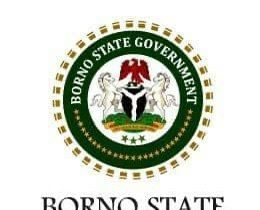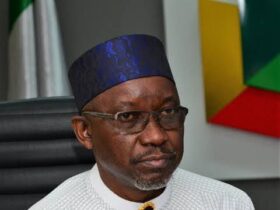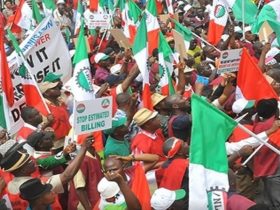UK Government Charges Former Nigerian Minister Diezani Alison-Madueke with Bribery
In a significant development, former Nigerian minister Diezani Alison-Madueke has been officially charged with bribery offenses by the United Kingdom government.
The charges stem from alleged incidents of bribery, and she is slated to make her appearance in Westminster Magistrate Court on October 2, 2023.
The National Crime Agency (NCA) issued a statement on Tuesday, August 22, asserting that these charges signify a milestone in an extensive and intricate international investigation. Madueke, who served as the petroleum resources minister during the presidency of Goodluck Jonathan between 2010 and 2015, also held the position of president of the Organization of the Petroleum Exporting Countries (OPEC).
According to the NCA, there are suspicions that Madueke accepted bribes during her tenure as the Minister for Petroleum Resources in return for awarding substantial oil and gas contracts. The charges against her span a range of alleged benefits, including a minimum of £100,000 in cash, luxurious chauffeured cars, private jet flights, extravagant family vacations, and the utilization of numerous properties in London.
The NCA detailed that the charges further encompass financial advantages such as furniture, property renovations, staffing, covering private school fees, and receiving gifts from high-end designer establishments like Cartier and Louis Vuitton.
Commenting on the matter, Andy Kelly, the head of the NCA’s International Corruption Unit (ICU), noted, “We suspect Diezani Alison-Madueke abused her power in Nigeria and accepted financial rewards for awarding multi-million-pound contracts. These charges are a milestone in what has been a thorough and complex international investigation. Bribery is a pervasive form of corruption, which enables serious criminality and can have devastating consequences for developing countries. We will continue to work with partners here and overseas to tackle the threat.”
It has come to light that assets with a substantial value have already been frozen as part of the ongoing investigation into the alleged offenses. This case has also resonated with international partners; in March 2023, the US Department of Justice, leveraging evidence provided by the NCA, successfully recovered assets totaling USD$53.1 million that were linked to Diezani Alison-Madueke’s purported corruption.
Throughout the investigation, officers from the International Corruption Unit (ICU) collaborated closely with the Economic and Financial Crimes Commission of Nigeria. Additionally, coordination took place with the NCA-hosted International Anti-Corruption Coordination Centre (IACCC), which brings together specialized anti-corruption investigators from multiple jurisdictions around the world to address allegations involving politically exposed individuals.
The Crown Prosecution Service (CPS) granted authorization to the NCA to charge Diezani Alison-Madueke with bribery offenses. The CPS reviewed a comprehensive file of evidence provided by the NCA, specifically related to the allegations of bribery in Nigeria. It was emphasized that criminal proceedings against Madueke are currently active, and she retains the right to a fair trial.
Andrew Penhale, Chief Crown Prosecutor for the CPS, highlighted that the function of the CPS is to make impartial and objective assessments regarding whether to present charges for a criminal court’s consideration. He emphasized the importance of refraining from any reporting, commentary, or sharing of information that could prejudice these proceedings.
Diezani Alison-Madueke has been the subject of multiple allegations in Nigeria, particularly tied to her tenure as the country’s Minister of Petroleum Resources. In October of the preceding year, the Federal High Court in Abuja ordered the final forfeiture of two luxury properties and vehicles linked to her to the Federal Government. These properties, situated in prestigious areas of Abuja, were valued at substantial sums and were deemed proceeds of alleged unlawful activities. The Economic and Financial Crimes Commission (EFCC) played a pivotal role in these proceedings.
As the legal proceedings unfold, attention remains fixed on this case that underscores the concerted efforts to combat corruption on both national and international fronts.









Leave a Reply